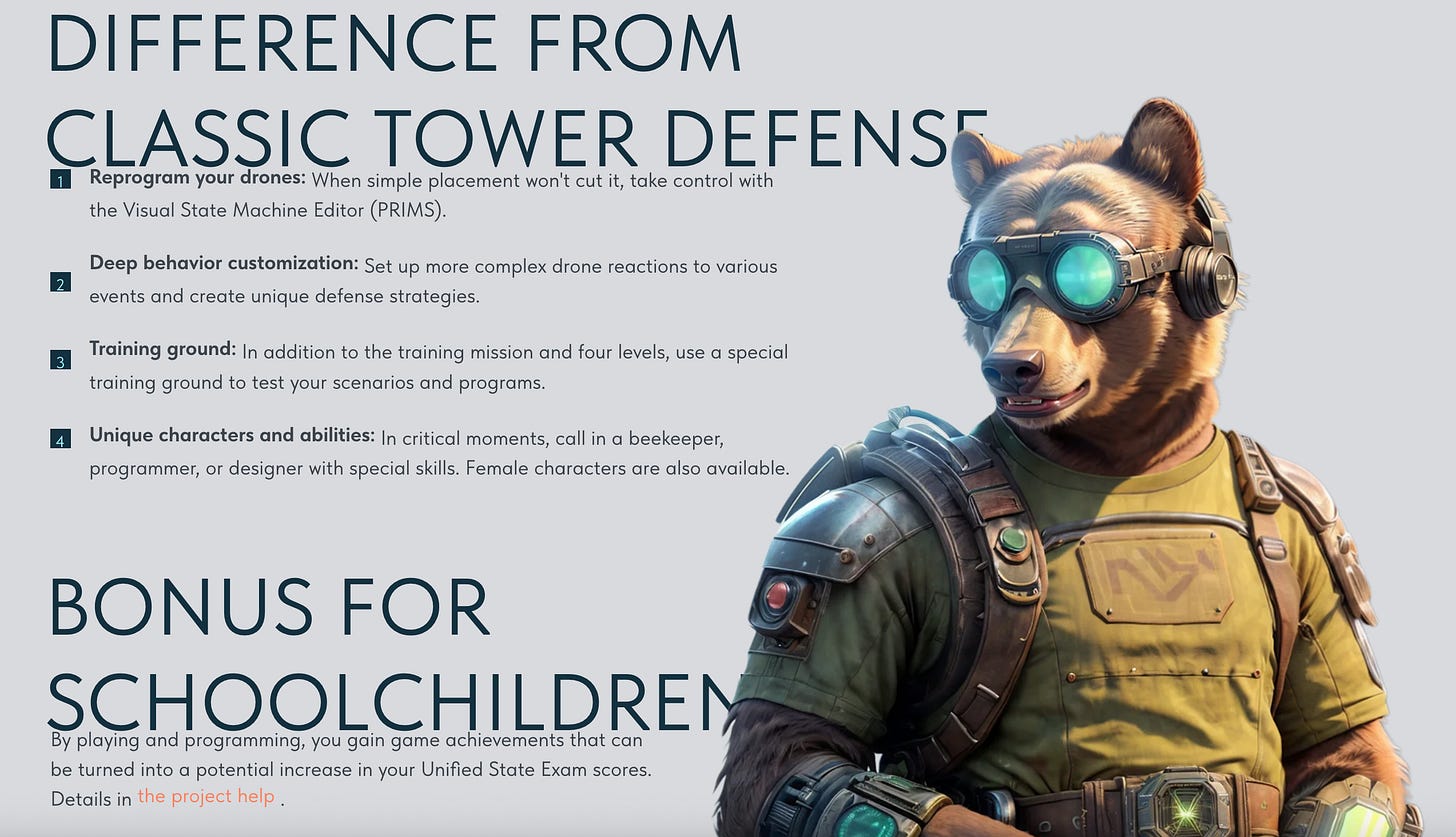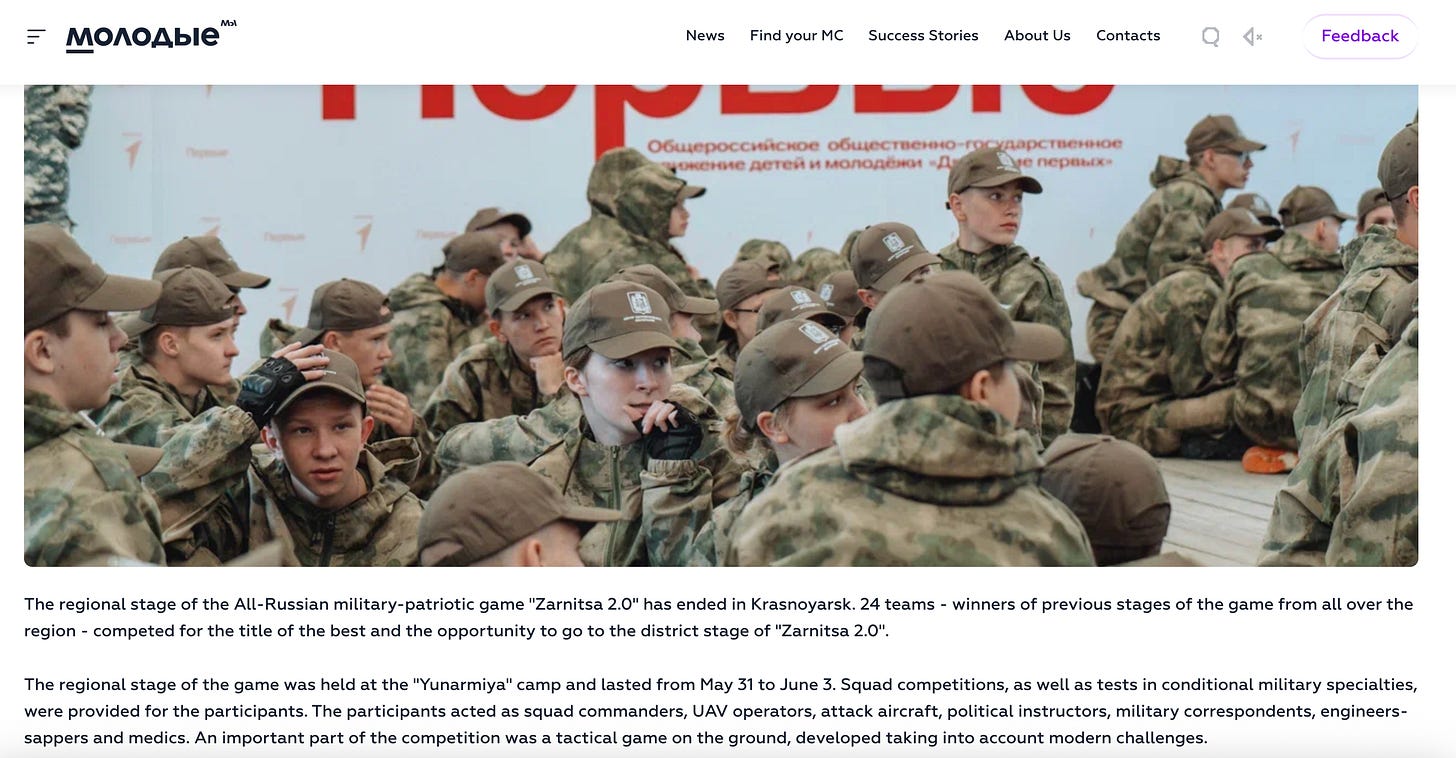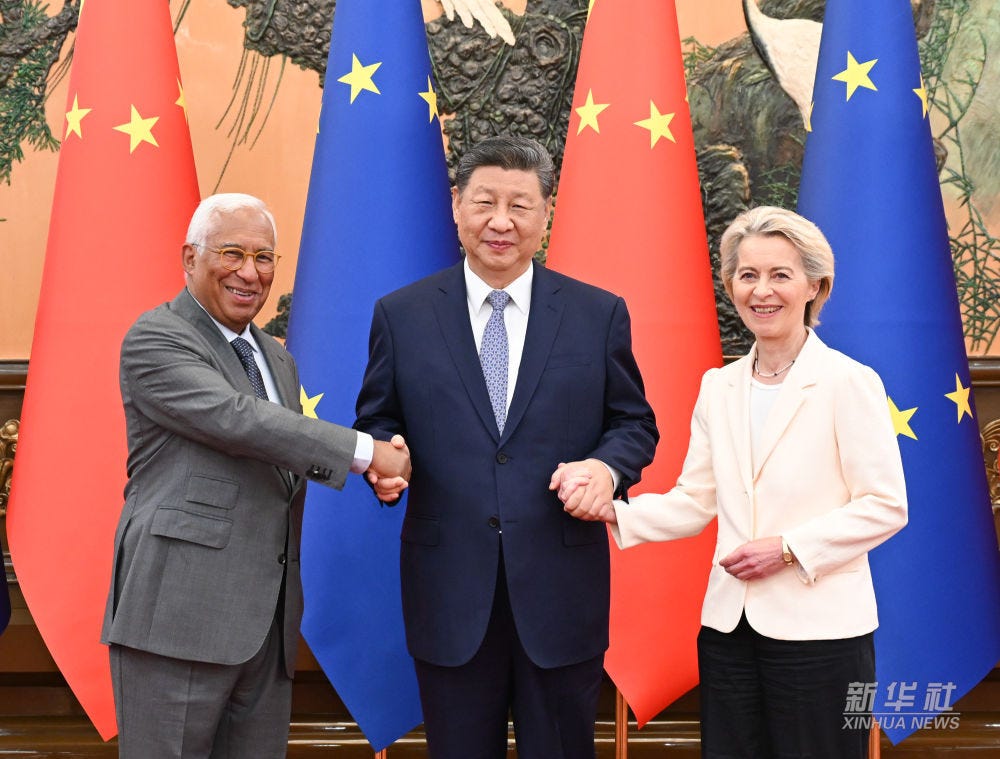Weekly Significant Activity Report - July 26, 2025
Russia faces growing Western pressure over foreign support and youth militarization for war, while China-EU leaders remain divided as Beijing widens Hong Kong activist crackdown
This week's analysis highlights some of the most significant news concerning America's adversaries between July 19, 2025 - July 26, 2025.
Summary:
No progress results from new talks between Russia and Ukraine this week as Moscow maintains maximalist demands.
New reports surface of Indian and Chinese support for Russia’s war effort amid an intensified pressure campaign by the West on Russian enablers.
New evidence emerges that Russia is grooming both Russian and abducted Ukrainian children to support its war effort.
China and the European Union hold a tense leaders summit in Beijing.
China aggressively expands the enforcement of the 2020 Hong Kong National Security Law, demanding the arrest of 19 pro-democracy activists overseas.
Chinese defense giant NORINCO unveiled a new package of unmanned systems.
1. NO BREAKTHROUGHS IN SIGHT WITH NEGOTIATIONS BETWEEN UKRAINE AND RUSSIA
This week, Ukrainian and Russian officials resumed negotiations to end the war in Istanbul. Russian negotiators did not make any provocative new claims, as they had in previous talks, but retained hardline positions. Ukraine’s lead negotiator, Rustem Umerov, suggested that Ukrainian President Zelensky and Russian President Vladimir Putin meet in August, a suggestion which was quickly rejected by the Kremlin. One of the few agreements reached in the talks was the resumption of exchanges of prisoners and war dead. Both sides agreed to exchange 1,000 prisoners, and negotiate the return of 3,000 fallen soldiers’ bodies.
Takeaways:
It is unsurprising that this week’s talks resulted in no progress. As discussed at length in the May 20, OPFOR Journal Situation Report, the Kremlin is unwilling to soften its maximalist demands for the following reasons:
Russia is concerned it lacks a compelling case for victory if the war stops now.
Putin believes that time may yield a better deal as Russian troops advance and the Western support for Ukraine fractures due to internal squabbles.
Putin is not interested in the carrots being presented in negotiations as a reason for compromise.
2. NEW EVIDENCE OF INDIAN AND CHINESE SUPPORT FOR RUSSIAN WAR EFFORT
Indian Company Sells Russia High Explosives
Reuters reported this week that in December 2024 an Indian company ignored the threat of US sanctions and shipped $1.4M worth of HMX explosive to Russia. HMX (aka octogen) is a critical component of Russia’s war effort and is used to produce a variety of weapons including missiles and artillery munitions.
Chinese Firms Shipping Drone Engines to Russia
Another Reuters report this week found that Chinese companies were mislabeling engines for long-range drones to skirt sanctions. L550E engines produced by Xiamen Limbach Aviation Engine Co. were labeled as industrial refrigeration units and transported to Russia’s IEMZ Kupol weapons manufacturer to help scale the production of Garpiya long-range strike drones.
Takeaways:
The two stories, both broken by the same news outlet within days of each other, suggest that Western officials are leaking information to generate pressure on China and India to own up to or discontinue their support for Russia’s war effort.
The timing of the new reports coincides with more aggressive signaling by the US toward China for its support of Russia following threats by President Trump and the US Congress to enact secondary sanctions on Russia’s trading partners. One example of this more aggressive approach by US officials was when the new US ambassador to NATO Matthew Whitaker claimed in a July 22 Fox News interview that China was using Russia as a proxy to battle the West.
"I think they need to be called out for their subsidizing this killing that is happening on the battlefields in Ukraine…China thinks they're fighting a proxy war through Russia. They want to keep the US and our allies occupied with this war, so that we can't focus on our other strategic challenges."
Another followed on July 25, when Acting US Ambassador to the UN Dorothy Shea confronted China’s representatives during a meeting of the UN Security Council.
“Beijing’s claim to have implemented strong export controls on dual-use goods falls apart in the face of daily recovery of Chinese-produced components in the drones, weapons, and vehicles that Russia uses against Ukraine”
This pressure campaign is likely to intensify in coming days ahead of the Trump administration’s 50-day deadline for Russian negotiations to avert secondary sanctions.
3. RUSSIA GROOMING CHILDREN TO SUPPORT WAR EFFORT
Kremlin Cultivating Youth Talent for Drone War
Independent Russian investigative journalism outlet The Insider, released a report on July 22, documenting Russian government initiatives to co-opt Esports, school activities, and vocational training to involve children in efforts to support the Russian defense industrial base. The initiatives included contests and grant opportunities to build military equipment and improve software, and refine drone operations.


Abducted Ukrainian Teens Being Prepared for Conscription into Russian Military
In an interview this week with UK news outlet, The Times, President Zelensky’s chief of staff, Andriy Yermak reported that Ukraine has evidence that many of the 35,000 estimated Ukrainian children abducted by Russia from occupied territories are being further trafficked into the Russian armed forces and war. Nathaniel Raymond, director of Yale University’s Humanitarian Research Lab also told the newspaper that:
“Anecdotally, the conscription-to-combat pipeline is everywhere. We have heard it an awful lot. We know older kids are being put into cadet schools, given combat weapons training and combat vehicle training. Why would they be put into this training pipeline? There can be only one good reason for it, and it’s not for parades.”
Takeaways:
The Kremlin is looking for ways to stretch its resources to prepare Russian society for a prolonged war without full mobilization. Russia has also pursued the recruitment of migrant workers from South Asia and Africa into drone production and military service under the guise of vocational training.
4. TENSE 25th CHINA-EU LEADERS SUMMIT
China Warns EU Not to Sanction Chinese Companies Over Support for Russia
Ahead of this week’s summit, China’s Ministry of Commerce announced its “strong dissatisfaction and firm opposition” to Chinese companies sanctioned in the EU’s 18th round of sanctions against Russia. Two Chinese banks were blacklisted in the sanctions package for supporting sanctions evasion: Heilongjiang Suifenhe Rural Commercial Bank and Heihe Rural Commercial Bank. This represents the first time the EU has sanctioned Chinese financial institutions as part of its effort to isolate Russia.
Xi Meets with Top European Leaders
On July 24, Chinese President Xi Jinping met with European Council President António Costa and European Commission President von der Leyen in Beijing during the China-EU leaders summit. The leaders exchanged proposals to address key issues affecting bilateral relations.

Takeaways:
The already scaled-back China-EU leaders summit did little to address European leaders’ concerns about the direction of China’s more aggressive behavior in recent months. Curbs on critical mineral exports and vows to support the Russian war effort have upended the EU’s attempt to reset relations with China in recent months. China and Europe’s positions on trade and global stability remain far apart.
EU’s proposals for cooperation with China:
Reduce trade deficit and unfair trade practices. Need for a “more balanced and mutually beneficial trade relationship built on fairness and reciprocity”
Commitment to uphold the “international rules-based order and work together to safeguard multilateralism”
Agreement that the “EU and China must lead global efforts to reduce greenhouse gas emissions, including at COP30”
China’s proposals for cooperation with EU:
EU remain out of China’s internal affairs. “We hope that the European side will also respect the path and system chosen by the Chinese people, respect China's core interests and major concerns, and support China's development and prosperity.”
Drop efforts to decouple from China. “History and reality have proved that mutual dependence is not a risk, and the integration of interests is not a threat. Improving competitiveness cannot rely on "building walls and barriers", and "decoupling and breaking chains" will only isolate ourselves. "Reducing dependence" cannot reduce cooperation.”
“China and Europe should jointly safeguard the international rules and order established after the end of World War II, advance with the times to promote the construction of a more just and reasonable global governance system, work together to address global challenges such as climate change, and let the torch of multilateralism illuminate the way forward for mankind.”
While Xi’s proposals to preserve the post-World War II world order sound reassuring, they should give EU leaders pause. The post-Cold War order is largely considered the birth of the liberal international order and the emergence of the European Union. But the earlier post-World War II period that Xi references saw European countries focused on their own reconstruction and retreating from empire and global leadership. During the post-Word War II era a Eurasian empire headquartered in Moscow (aka the Soviet Union) ruled in Ukraine and the Baltic region and subjugated a significant portion of Europe as part of its sphere of influence.
5. HONG KONG’S NATIONAL SECURITY LAW GOES GLOBAL
This week Hong Kong police issued arrest warrants for 19 overseas democratic activists associated with the “Hong Kong Parliament” group. The arrest warrants included 15 bounties for as much as HK$1 million (approximately $127,400). The activists are accused of violating the Beijing-imposed Hong Kong National Security of 2020, including with such offenses as “promoting ‘self-determination’” and “promulgating the so-called ‘Hong Kong Constitution’.”
Takeaways:
China has become more aggressive in evoking the Hong Kong National Security Law to snuff out any remaining democratic opposition in the city in the five years since it was enacted. Having succeeded within the city due to limited international push back, Beijing is increasingly looking to gauge its ability to arrest democratic opposition overseas. China has found success facilitating the arrest and extradition of exiled members of its Uyghur minority, and may be testing to see what it can achieve with similar efforts related to Hong Kong now and Taiwan in the future.
6. NEW UNMANNED AND ANTI-UNMANNED SYSTEMS DEBUT IN CHINESE DRILLS
This week China North Industries Group Corp (NORINCO), a top Chinese defense manufacturer sanctioned by the US, unveiled a new package of next generation military equipment. The equipment was put on display during border control exercises in China’s northern region of Inner Mongolia.
Source: Chinese Style CN on YouTube
Takeaways:
Nearly all equipment advertised in this latest offering by NORINCO is unmanned or designed to counter unmanned systems. Notable equipment on display includes:
Unmanned VU-T10 Infantry Fighting Vehicles
OW-5 anti-drone laser weapon
Flying Frog - vertical take-off and landing reconnaissance drone
Flying Falcon - high-speed one-way attack drones
Flying Dragons - modular series of one-way attack drones
Black Bee - drone capable of dropping small grenades
Flying Whale - heavy lift drone capable of dropping larger bombs




